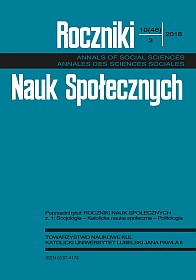On the Fringe: Greece, Migration, and Populism
Abstract
The global financial crisis and the euro area crisis and their implications, triggered populism and demagogy, which have fed on people’s ignorance, confusion and despair. As no common EU-level response to the refugee and migration crises was negotiated promptly, over the period 2015-2016 the EU-level debate on migration created a new opportunity for domestic political actors to employ migration as a resource of political competition at home. Paradoxically, in Greece, i.e. a country so profoundly exposed to the unprecedented influx of migrants, migration has not been used as a resource of political competition. This paper identifies and examines factors that have contributed to that.
References
Angeli, Danai, Anna Triandafyllidou, and Angelika Dimitriadi. “Assessing the Cost Effectiveness of Irregular Migration Control Policies in Greece.” MIDAS Policy Paper, October 2014, ELIAMEP, Athens.
Baxevanis, Jean. Population, Internal Migration and Urbanization in Greece.” Balkan Studies 1965, ,, https://ojs.lib.uom.gr/index.php/BalkanStudies/article/view/104582/589
Bayer, Lili. “Hungary Says Refugee Ruling ‘Raped’ EU Law.” POLITICO 9(2017). Accessed: February 01, 2018. https://www.politico.eu/article/hungary-says-ecj-ruling-on-refugee-quotas-has-raped-eu-law-asylum-seekers-italy-greece-relocation-scheme/.
European Commission. “A European Agenda on Migration.” Communication from the Commission to the European Parliament, the Council, the European Economic and Social Committee and the Committee of the Regions. Brussels, 13.5.2015. COM(2015) 240 final.
European Commission. “Progress Report on the European Agenda on Migration.” Report from the Commission to the European Parliament, the European Council and the Council. SWD(2017) 372 final.
European Commission. “Managing the Refugee Crisis: EU Financial Support to Greece.” Fact Sheet, Migration and Home Affairs. Accwssed April 12, 2016. http://ec.europa.eu/dgs/homeaffairs/whatwedo/policies/europeanagendamigration/background
Eurostat. “Gross Fixed Capital Formation.” http://ec.europa.eu/eurostat/tgm/refreshTableAction.do?tab=table&plugin=1&pcode=tec00011&language=en
Eurostat. http://appsso.eurostat.ec.europa.eu/nui/show.do?dataset=nama10_gdp&lang=en
Eurostat. http://appsso.eurostat.ec.europa.eu/nui/show.do?dataset=une_rt_a&lang=en
Georgakopoulos, Thodoris. “Extreme Poverty in Greece.” Dianeosis Research and Policy Institute. June 2016. Accessed January 15, 2018. https://www.dianeosis.org/en/2016/06/extreme-poverty-greece-survey/
Hay, Colin and Ben Rosamond. “Globalization, European Integration and the Discursive Construction of Economic Imperatives.” Journal of European Public Policy 9 (2002) Iss. 2. Accessed January 15, 2018. http://www.ekathimerini.com/210585/article/ekathimerini/news/humancapitalis greecesno1export
IOM. “World Migration Report 2015.” Geneva: International Organization for Migration (IOM), 2015.
Kasimis, Charalam and Chryssa Kassimi. “Greece: A History of Migration.” June 1, 2004. Migration Policy Institute (MPI). Accessed January 15, 2018. https://www.migrationpolicy.org/ article/greece-history-migration.
Kathimerini. “Human Capital is Greece’s No 1 Export.” Kathimerini English Edition June 19, 2016.
Kathimerini. “Migrant Costs to Exceed 600 Million Euros, Says Greek Central Bank.” Kathimerini, March 13, 2016. Accessed January 15, 2018. http://www.ekathimerini.com/206939/article/ekathimerini/business/migrantcoststoexceed600millioneurossaysgreekcentralbank.
Lanckoronska, Karolina. Wspomnienia wojenne. Warszawa: Wydawnictwo Znak 2001.
Mazzucelli, Colette G., Anna Visvizi, and Ronald Bee. “Secular States in a ‘Security Community’: The Migration-Terrorism Nexus?.” Journal of Strategic Security 9(3)2016: 16-27, Fall. DOI: http://dx.doi.org/10.5038/1944-0472.9.3.1545.
Pachocka, Marta. “Understanding the Visegrad Group States’ Response to the Migrant and Refugee Crises 2014+ in the European Union.” Yearbook of Polish European Studies 19(2016): 101-132.
Riedel, Rafał. “Populism and Its Democratic, Non-Democratic, and Anti-Democratic Potential.” Polish Sociological Review 3 (199) (2017): 287-298.
Schweiger, Christian. Exploring the EU’s Legitimacy Crisis: The Dark Heart of Europe. Cheltenham: Elgar Publishing, 2016.
Stępniewski, Tomasz. Geopolityka regionu Morza Czarnego w pozimnowojennym świecie [The Geopolitics of the Black Sea Region in the Post-Cold War World]. Lublin–Warszawa: Instytut Europy Środkowo-Wschodniej, 2011.
Visvizi, Anna. “Democracy or Demagogy? The Greek Political Actors on the Sovereign Debt Crisis.” In Distant Voices. Ideas on Democracy and the Eurozone Crisis, edited by Lise Rye, 23-50. Rostra Books – Trondheim Studies in History, Trondheim, Norway: Akademika Publishing, 2013.
Visvizi, Anna. “The Crisis in Greece and the EU-IMF Rescue Package: Determinants and Pitfalls.” Acta Oeconomica 62 (1)(2012): 15-39.
Visvizi, Anna. “Greece, the Greeks, and the Crisis: Reaching Beyond ‘That’s how it Goes’’ Carnegie Ethics Online Sept. 7, 2016. http://www.carnegiecouncil.org/publications/articles_ papers_ reports/ 787
Copyright (c) 2018 Roczniki Nauk Społecznych

This work is licensed under a Creative Commons Attribution-NonCommercial-NoDerivatives 4.0 International License.


